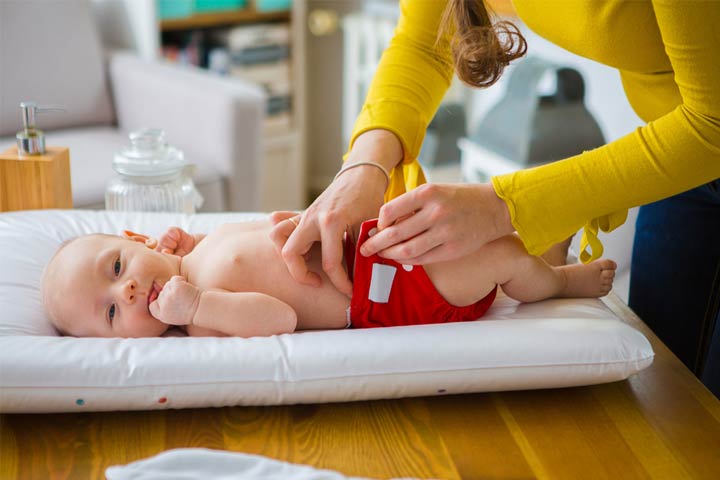
Image: Shutterstock
Babies are expensive! Whether you are planning for a baby or are already new parents, knowing how to manage your budget can come in handy if you don’t wish to drain your finances on baby gear. If you are looking to trim down your expenses and learn a thing or two about some saving strategies, you have come to the right place. Scroll down as we list 7 easy ways to save money after baby.
1. Accept Hand-Me-Downs
If you have a friend or a family member whose child is a year or two older than yours, you can make an arrangement to use their clothes whenever they grow out of it. Parents who have an older child can also save tons of money by using their hand-me-downs. Many parents buy gender-specific baby clothes only to find out later that they cannot use it for their second child. So, it’s always safe to go for gender-neutral colors and styles.
2. Resist Your Urge To Shop For Newborn Clothes
Chances are you will never be short on baby clothes in newborn sizes, thanks to your friends, family, or the baby shower you decided to have. While it might be tempting to splurge on newborn clothes in the last trimester of your pregnancy, it’s best to buy a few clothes for babies between the ages of 9 to 12 months so that you are stocked up on sizes you would really need.
3. Breastfeed If You Can
Besides being the best food that you can possibly give your baby, nursing will save you tons of money as the cost of formula can be really expensive for new parents. So, try to breastfeed your baby for the first 6 months if you can. If you find that nursing restricts you from getting enough sleep, you can buy an electric or manual pump and store the milk beforehand so that your partner can also take turns and be in charge of nighttime feedings.
4. Realize That Your Baby Doesn’t Need Fancy Toys
Your baby won’t care whether you get him a $10 toy or a $30 one. Toys not only keep your baby entertained but stimulate their senses. But do you really need to spend your money on fancy and expensive toys that will be tossed in the garage in a few months? Instead of shopping for brand new ones, you can also get them in kids’ consignment sales, which will be a lot cheaper and will keep your baby just as entertained as an expensive one.
5. Buy In Bulk
Stocking up on baby essentials such as diapers, baby wipes, and formula will not just save you frequent trips to the store, but will give you good discounts. However, if you are not sure about a product, it is best to test it out before you stock up on them. When buying newborn diapers, make sure not to go overboard as your baby will soon grow out of them.
6. Before You Buy Anything, Ask Yourself, “Do I Really Need It?”
As a new parent, you might be tempted to splurge on new clothes and baby gear on more than one occasion. So, every time you make an unplanned purchase, take a moment to think about why you need it and how the product will be of use to you. If you’re struggling to come up with a valid reason on why you need a product, and want to purchase just because it seems exciting at the moment, hold off.
7. Consider Cloth Diapers
If you are worried about diaper costs in the first year of your baby’s life, you might want to consider cloth diapers instead of disposable ones. By switching to cloth diapers, you will be saving a significant amount of money and you can be sure they will suit your baby’s sensitive skin, unlike disposable diapers which may contain chemicals.
Bringing a baby into the world is an exciting time for new parents. It’s a journey filled with new adventures, experiences, and milestones. We hope that our tips help you in embarking on this journey with less financial stress.



















